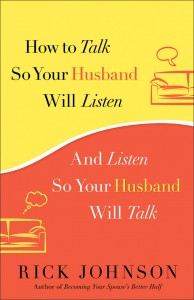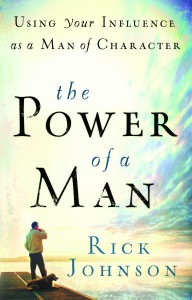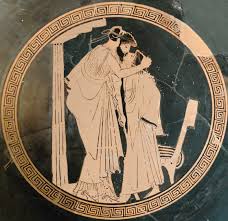What if God didn’t design marriage to be “easier”? What if God had an end in mind that went beyond our happiness, our comfort, and our desire to be infatuated and happy as if the world were a perfect place?
–Gary Thomas, Sacred Marriage
One of the greatest fallacies we buy into is that there is the “perfect” person out there just waiting to make us happy for the rest of our lives if we can only find them. Many of us spend our entire lives, including our marriages, dreaming of a person who would complete our life and make us happy and content. I’m convinced that person doesn’t exist and that our marriage is more about what we make it than any predestined or preordained match made in heaven. The myth of the “soul mate” has been foisted upon men and women like bad cake at a wedding.
Another error that people buy into is the illusion that love means the absence of conflict. Just as people want to believe that pain and sadness should be avoided at all costs, they believe that love means no conflict.
If you believe that the right person will come along and make you happy, you are deluded. You, not other people, are responsible for your own happiness. Every relationship, especially one of love, is painful and often difficult. That’s why it is worthwhile. With the beauty and fragrance of a rose come the thorns that scratch and sometimes draw blood. Going through the struggles of life together brings you closer and bonds you deeper. Those relationships without conflict and pain are dead, cold, and passionless. I say rejoice in your conflicts because it means your marriage is alive and growing!
Our daughter recently mentioned to my wife that she wanted a love like we have, that we still acted like we were on our honeymoon. I don’t know whose house she’s been living in for the past twenty-some years, but I don’t often feel like we’re still honeymooners. But in hindsight, perhaps because my wife and I still frequently hold hands, hug and kiss, and even dance together in the living room, our daughter feels we have a great love. We like to travel together, and we enjoy each other’s company. We speak respectfully to each other and try to be cheerleaders for one another. Our actions and words not only direct our feelings but also signify to others our love and passion for one another. In short, we are good friends. That friendship fuels our love for one another and carries us through those rough spots when one of us is feeling disagreeable or fed up with the other.
Many young couples today are frustrated with each other and their marriage because neither partner knows how to relate to and communicate with the other. No one has ever taught them the fundamentals of building an intimate relationship, so they are starting from scratch, guessing at how a marriage works. This confusion causes arguments and disagreements. This lack of taught communication skills (which were often never modeled for them in their parents’ marriages) creates tension and prevents intimacy in a relationship.
But perhaps of more importance than even communication in a marriage is love—love that is not a feeling or an emotion, but one that is a verb, an action word. If we take loving actions in our relationships, the feelings of love will follow. There’s an old adage that thoughts become actions and actions become feelings. Your attitude is everything.
Perhaps it is unrealistic to expect this kind of selflessness in a culture that demands total fulfillment and self-satisfaction out of every relationship, or quickly abandons a relationship for one more attractive. Of course, the same problems follow and nag the subsequent relationship as well, because it is not about having your needs met but about meeting the needs of your spouse. Love is about giving, not receiving.
Having a successful marriage is not about finding the perfect person to marry, although that is what many people believe. It is about loving someone in a forgiving, Christlike manner. The Bible illustrates this agape-type love in many stories, ranging from Hosea, who continued to love and take back his adulterous wife; to Joseph, who forgave his brothers for selling him into slavery. In my experience, love requires nearly constant forgiveness.
Love is a choice. If we choose to love, we will be loved in return. God chooses to love us despite our imperfections. This in turn should inspire us to extend the same grace to the person we have chosen to spend our lives with and to be the mother or father of our children. If that is not possible, perhaps we should have made a better choice to begin with.
Remember, love isn’t about you—it’s about the one you love.
Excerpted from Rick’s book, Becoming Your Spouse’s Better Half: Why Differences Make a Marriage Great, by Revell Publishing. Look for this book as a special Kindle offer of only $1.99 on April 17th only! Go to: http://www.amazon.com/Becoming-Your-Spouses-Better-ebook/dp/B00B853QCK/ref=sr_1_1?s=digital-text&ie=UTF8&qid=1366074082&sr=1-1&keywords=becoming+your+spouses+better+half












